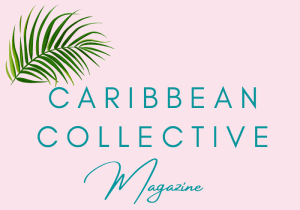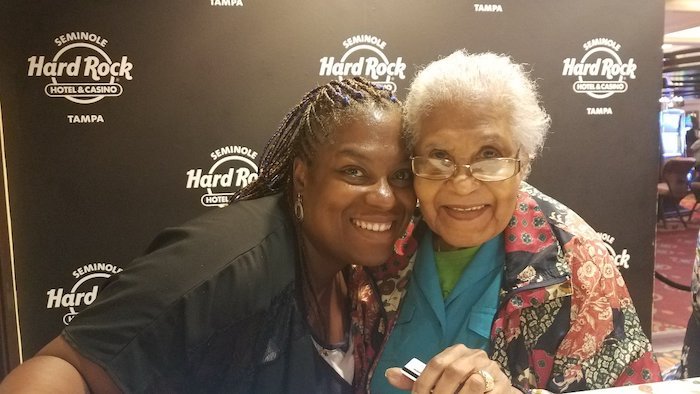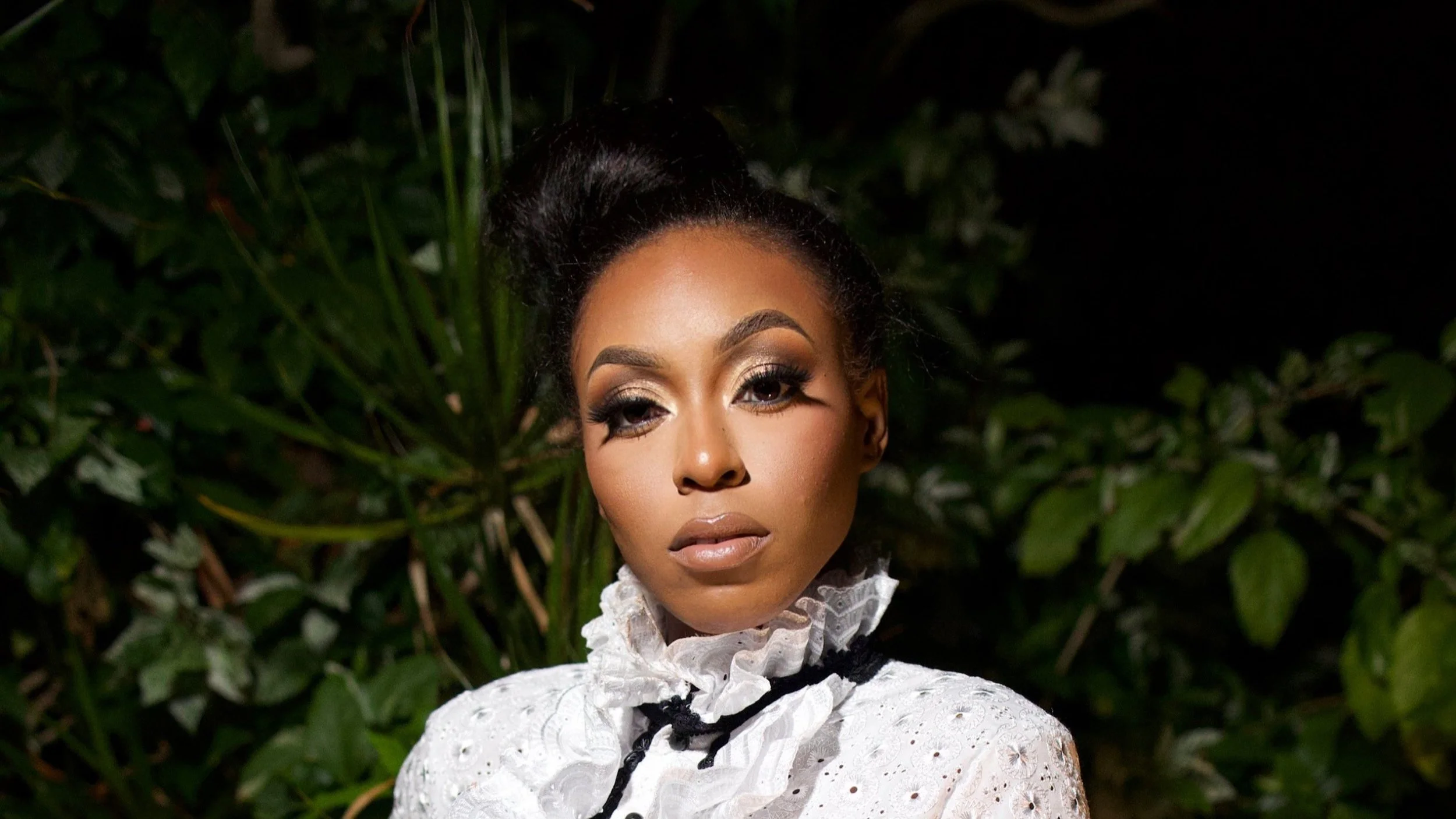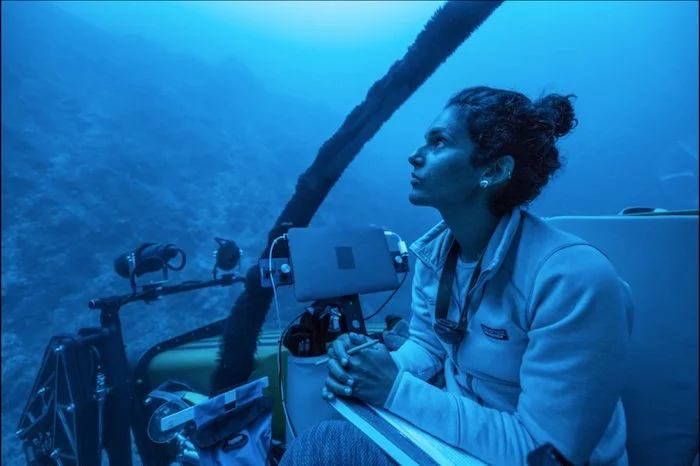Daughters of the West Indies: Remembering My Grandma Bebe and All our Unsung Sheroes
Photo courtesy of Shanida Carter
“If you are the daughter or granddaughter of a West Indian woman and you don’t live in the Caribbean, chances are you have a mother or grandmother like mine.” - Shanida Carter
The last time I spent time with my Grandma Bebe was when my husband and I took her to one of her favorite places in the world: the casino. She loved playing slots and had a method. This visit was no different. She carefully walked with her cane, inspecting each blinking machine until she found the one she believed would yield some money. Then she sat, pressed her soft fingers to the video screen, and massaged it to coax it to display winning numbers. Over and over again. She packed fruit and cookies in her purse so she wouldn’t have to move from her seat and risk losing the jackpot she felt was coming from her chosen machine. On the way to the casino, she told me her doctor suggested she have surgery.
“De doctor tell me, ‘What about the hernia?’
‘ I said, What about it? That’s my baby. I ain doin nuttin. No surgery. Too many already.’”
Well into her 80s, she didn’t cease to make me laugh or amaze me. With that hernia, she sat for hours, then walked full circle around the floor of the Hard Rock Casino in Tampa, Florida.
She loved her slot play so much that we spent 12 hours in one casino in Trinidad when she brought me with her for a visit. That had been my first visit to her native island as an adult. I drank Shandys with every meal and ate bake and saltfish for breakfast. I visited a cousin’s record store in the capital, Port of Spain. I met more family in one week than I knew existed. She filled in all the blanks I had about our family tree. She was my link to my Trinidadian heritage, and that link no longer shares time and space with me on Earth.
[Additional Read: HERstory: 5 Badass French Caribbean Women Intellectuals That Need to Be in History Books]
My beloved paternal grandmother, Beryl Smith, whom I affectionately called Grandma Bebe, passed away on October 11, 2022. She was born in 1933 in Arima, Trinidad, and she had seven siblings who were all close. She worked as a seamstress, then in her oldest brother’s sandwich shop before giving birth to three sons, one of whom is my biological father.
Her big sister, who is still alive, sponsored her to come to the United States, where she worked as a pediatric nursing assistant at Downstate Medical Center in Brooklyn, New York, for many years. She worked hard and saved to bring her sons and some of her siblings to the U.S. I’m told the journey to get her sons to the States was a super spy-type endeavor that involved an Interpol-like mission, but she never told me, so I’ll never really know. She was a no-nonsense, stubbornly independent, and playfully sarcastic spirit who was the ultimate keeper of secrets. One of her frequent phrases was, “Ion know nuttin.”
If you are the daughter or granddaughter of a West Indian woman and you live in Canada, the U.S. or the United Kingdom, chances are you have a mother or grandmother like mine.
I’ve interviewed several trailblazers for Caribbean Collective Magazine, including an Emmy-winning producer, marine biologist, judge, entrepreneur, author, and art gallery owner. Most of these highly accomplished and extraordinary women have at least one thing in common: their single mothers left their islands, emigrated to the U.S. or U.K., worked super hard in a domestic or caregiving capacity, and raised stars that exceeded all expectations.
Though these highly accomplished women appropriately credit their mothers for their success, we don’t see those moms getting awards or their names on buildings or streets. We don’t see trending hashtags or news articles published about them, such as when Nevisian Cicely Tyson passed away. Yet, the stars that are their daughters most likely would not have reached the sky without their sacrifice, and few will ever understand just how astronomical the wind beneath our wings is.
Grandma didn’t hit the jackpot during the last time I spent with her, but I did. Despite my upbringing without my biological father, Grandma Bebe made it part of her life to ensure I knew I was “Trini to de bone.” I am so grateful that I interviewed and recorded my grandmother sharing what she wanted about our family history before she passed. I can now share that legacy with my children, who will accompany me to Trinidad this spring when we lay her ashes to rest in her homeland.
I cannot wait to eat bake and shark with them in Maracas Bay, take them downtown to get doubles, explore Tobago with them, or have them meet an endless parade of Trinidadians with whom they share DNA. Grandma Bebe made it all possible. To use another one of her frequent phrases, “Tank Gawd.” Let’s make sure the publicly unsung SHEroes in our lives get their flowers.





